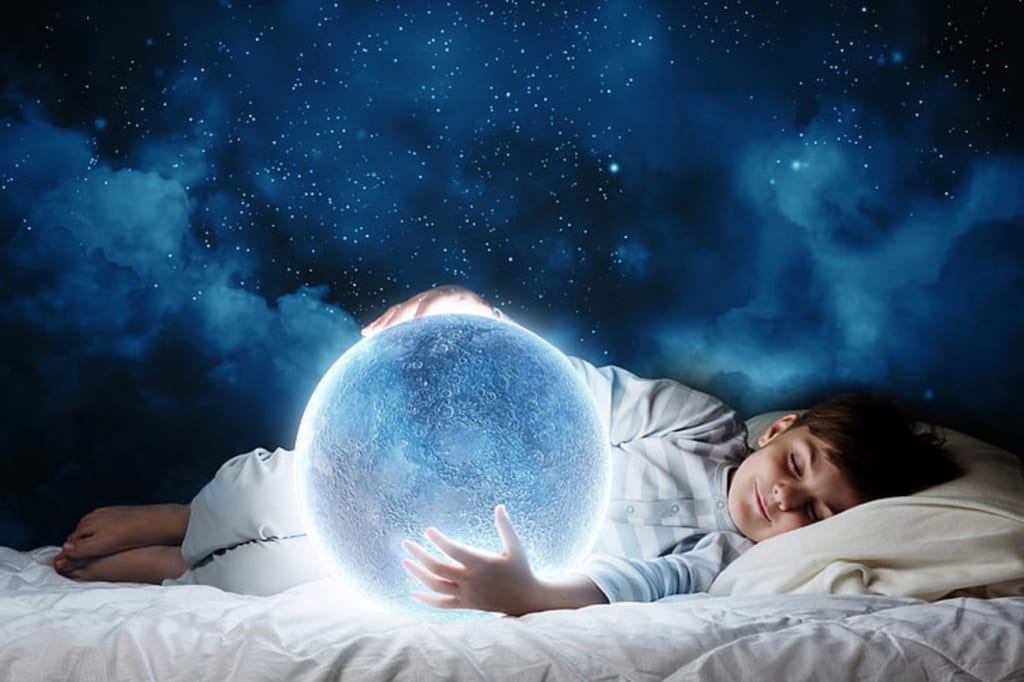
The reasons of dreams are not entirely known, and scientific research and discussion on the topic are still ongoing. Dreams can occur for a variety of reasons, and while several ideas try to explain why they happen, none of them offer a satisfactory explanation. The following are some variables thought to affect dream frequency:
REM Sleep:
Most often, dreams are connected to the rapid eye movement (REM) phase of sleep. During this particular sleep cycle, there is a high level of brain activity and a high frequency of vivid dreams.
Mental Activity:
It is believed that the brain's activity while you sleep produces dreams. Complex brain activities, such as problem-solving, emotional processing, and memory consolidation, may influence the content of dreams.
Consolidation of Memory:
Memory consolidation and organization may be aided by dreams. According to some ideas, the brain integrates new experiences into existing knowledge by reviewing and processing information from the day while dreaming.
Processing Emotions:
Dreams could be a way for people to process their emotions. They can give people a way to express and process their emotions, which can aid in their ability to make sense of the experiences and sensations they are having.
Anxiety and Stress:
Dreams can be influenced by stressful or anxiety-inducing events. High amounts of stress can affect the emotional content of dreams, resulting in scary or uncomfortable scenes.
Outside Stimuli:
Ambient elements, such sounds or feelings, might affect the content of dreams. For instance, a dream can include a loud noise from the surroundings.
Drugs and Substance Abuse:
Sleep patterns and the content of dreams can be impacted by specific drugs, chemicals, or treatments. For example, certain pharmaceuticals can either stimulate or inhibit dreaming, and chemicals such as alcohol and recreational drugs can affect the type of dreams.
Psychological Elements:
Personal experiences, ideas, and feelings have a big impact on the content of dreams. Dreams might mirror elements of a person's waking life, worries, aspirations, or unsolved problems.
It's crucial to remember that, despite the possibility that these elements influence dreaming, our understanding of the precise processes and functions of dreaming remains incomplete. Dreams are unique, intricate experiences, and different people will interpret them in very different ways. Scholars persistently investigate the neurology and psychology of dreams in order to acquire a more profound comprehension of this captivating facet of human awareness.
Dreams are mental events that come to mind as you sleep. They frequently combine ideas, feelings, experiences, and images to produce vivid and perhaps strange scenarios. Though they can happen at any stage of sleep, dreams usually happen during the rapid eye movement (REM) state.
There are several hypotheses regarding the role of dreams, although their precise purpose is not entirely understood. According to some, the brain processes and consolidates memories, emotions, and experiences from the day through dreams. Others speculate that dreams could be a tool for the brain to practice and replicate various circumstances, or even a technique to solve problems.
Numerous things, including as past events, feelings, stress, and even outside stimuli, can have an impact on dreams. They might be extravagant and surreal or boring and everyday. Dreams frequently represent the subconscious mind and can be impacted by a person's thoughts, feelings, and experiences.
Some dreams can have a profound effect on a person's feelings and thoughts, while others may be forgotten when they wake up. Oneirology is the study of dreams, and scholars and psychologists are still delving into this intriguing field to learn more about the nature and importance of dreams.
Happy Dreams:
Positive events: Positive, pleasant, or delightful events are frequently depicted in good dreams. Dreams in which the dreamer experiences happiness, fulfillment, success, or love may fall under this category.
Creative or Inspirational: Some people have dreams that give them fresh ideas or spark their creativity. Dreams can serve as an inspiration for writers, singers, and artists, among others.
Fears and Nightmares:
Anxiety and Fear: Severe feelings of fear, anxiety, or distress are hallmarks of nightmares, a particular kind of disturbing dream. They might entail danger, powerlessness, or dangerous circumstances.
Unpleasant Experiences: Negative feelings like despair, rage, or grief can also be evoked by circumstances in bad dreams. These dreams could be disturbing and have a bad aftereffect when you wake up.
Recurring Nightmares: Certain people may have nightmares that come back time and time again with themes or scenarios that are similar. These can be especially upsetting and should be addressed if they have a substantial effect on someone's wellbeing.






Comments
There are no comments for this story
Be the first to respond and start the conversation.